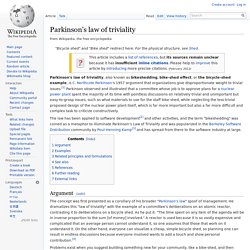

Familiarity breeds empathy. The more time we spend with people from another nationality the more empathy we have for them, University of Queensland research has found.

UQ’s School of Psychology and Queensland Brain Institute Associate Professor Ross Cunnington examined whether people’s brains responded to people of other races differently following an increase in contact with that race. “Research over the past decade has shown the brain has a very strong racial bias in response to seeing others in pain or suffering,” Dr Cunnington said. “As a result, we have much stronger biologically-driven empathy towards people of our own race. “However, our study has shown that the level of empathy in the brain increases the more a person spends time with other races.” Dr Cunnington said empathy depended partly on cerebral processes that led people to automatically mirror or share the emotions of others. Illusions and Movie Magic. 5 Brainwashing Tricks That Work No Matter How Smart You Are.
Everyone is talking about Scientology again, and why not?

It's a billion-dollar cult apparently based on convincing actors they have superpowers. Don’t fool yourself about “the other side” — everyone is selfish when it comes to politics. There is no shortage of accusations in politics that the people on the other side are deranged, stupid, selfish liars.

Demonic. Big fat idiots. Moochers. Kleptocrats. Realistic conflict theory. Conception[edit] History of the theory[edit] The theory was officially named by Donald Campbell, but has been articulated by others since the middle of the 20th century.[5][6] In the 1960s, this theory developed from Campbell's recognition of social psychologists' tendency to reduce all human behavior to hedonistic goals.

Rosenhan experiment. Experiment to determine the validity of psychiatric diagnosis Rosenhan's study was done in eight parts.

The first part involved the use of healthy associates or "pseudopatients" (three women and five men, including Rosenhan himself) who briefly feigned auditory hallucinations in an attempt to gain admission to 12 psychiatric hospitals in five states in the United States. All were admitted and diagnosed with psychiatric disorders. After admission, the pseudopatients acted normally and told staff that they felt fine and had no longer experienced any additional hallucinations.
All were forced to admit to having a mental illness and had to agree to take antipsychotic drugs as a condition of their release. The second part of his study involved an offended hospital administration challenging Rosenhan to send pseudopatients to its facility, whom its staff would then detect. There's a Name for That: The Baader-Meinhof Phenomenon - Pacific Standard. Your friend told you about that obscure bluegrass-electro-punk band yesterday morning.

That afternoon, you ran across one of their albums at a garage sale. Belief in Belief. Followup to: Making Beliefs Pay Rent (in Anticipated Experiences) Carl Sagan once told a parable of a man who comes to us and claims: "There is a dragon in my garage.

" Here's How A Mob Of Sheep Could One Day Save Your Life. The Mandelbaum Effect Might Explain A Lot Of Accidents. Parkinson's law of triviality. "Bicycle shed" and "Bike shed" redirect here.

For the physical structure, see Shed. Parkinson's law of triviality, also known as bikeshedding, bike-shed effect, or the bicycle-shed example, is C. Northcote Parkinson's 1957 argument that organizations give disproportionate weight to trivial issues.[1] Parkinson observed and illustrated that a committee whose job is to approve plans for a nuclear power plant spent the majority of its time with pointless discussions on relatively trivial and unimportant but easy-to-grasp issues, such as what materials to use for the staff bike-shed, while neglecting the less-trivial proposed design of the nuclear power plant itself, which is far more important but also a far more difficult and complex task to criticize constructively. Argument[edit] Execution by firing squad. Execution by firing squad is distinct from other forms of execution by firearms, such as an execution by a single firearm to the back of the head or neck.

However, the single shot (coup de grâce) is sometimes incorporated in a firing squad execution, particularly if the initial volley turns out not to be immediately fatal. Military significance[edit] The method is often the supreme punishment or disciplinary means employed by military courts for crimes such as cowardice, desertion, espionage, murder, mutiny, or treason. Suicide victim dies after crowd 'urges' him to jump : nottheonion. An Optical Illusion that Explains the Origins of Imaginary Monsters.
STOPPED CLOCK ILLUSION. Test Your Awareness: Do The Test. Social loafing. Social loafing can be explained by the "free-rider" theory and the resulting "sucker effect", which is an individual’s reduction in effort in order to avoid pulling the weight of a fellow group member.[3][4] Research on social loafing began with rope pulling experiments by Ringelmann, who found that members of a group tended to exert less effort into pulling a rope than did individuals alone.

In more recent research, studies involving modern technology, such as online and distributed groups, has also shown clear evidence of social loafing. Many of the causes of social loafing stem from an individual feeling that his or her effort will not matter to the group. History[edit] Rope-pulling experiments[edit] Results from Ringelmann's experiment. Asch Conformity Experiment.
Bystander Effect - people watch girl being abducted. Bystander Effect - What is the Bystander Effect. What is the Bystander Effect? The term bystander effect refers to the phenomenon in which the greater the number of people present, the less likely people are to help a person in distress.
When an emergency situation occurs, observers are more likely to take action if there are few or no other witnesses. In a series of classic studies, researchers Bibb Latane and John Darley (1) found that the amount of time it takes the participant to take action and seek help varies depending on how many other observers are in the room. In one experiment, subjects were placed in one of three treatment conditions: alone in a room, with two other participants or with two confederates who pretended to be normal participants. Stanley Millgram: Obedience to Authority. How to Create a Cult Atmosphere in Which No One Questions You. Dunning-Kruger effect. The Dunning-Kruger effect, named after David Dunning and Justin Kruger of Cornell University, occurs where people fail to adequately assess their level of competence — or specifically, their incompetence — at a task and thus consider themselves much more competent than everyone else.
This lack of awareness is attributed to their lower level of competence robbing them of the ability to critically analyse their performance, leading to a significant overestimate of themselves. Put more crudely, they're too stupid to realize they're stupid. The inverse also applies: competent people tend to underestimate their ability compared to others; this is known as impostor syndrome.
If you have no doubts whatsoever about your brilliance, you could just be that damn good. Is Pop Music Holding You Hostage? What marketing tricks do we unknowingly fall for? : AskReddit. The Logical Fallacy of Generalization from Fictional Evidence. When I try to introduce the subject of advanced AI, what's the first thing I hear, more than half the time? "Oh, you mean like the Terminator movies / the Matrix / Asimov's robots!
" And I reply, "Well, no, not exactly. I try to avoid the logical fallacy of generalizing from fictional evidence. " Some people get it right away, and laugh. "Attentional blink" causes you to forget what's in front of your eyes. The word game that reveals peoples' anxiety and depression. The scope of teleological thinking in preschool ch... [Cognition. 1999. The Image That Can Break Your Brain. Feel like a fraud? You might have Impostor Syndrome. Thought Reform and the Psychology of Totalism. Thought Reform and the Psychology of Totalism: A Study of "Brainwashing" in China is a non-fiction book by psychiatrist Robert Jay Lifton on the psychology of brainwashing and mind control. Lifton's research for the book began in 1953 with a series of interviews with American servicemen who had been held captive during the Korean War.
In addition to interviews with 25 Americans, Lifton also interviewed 15 Chinese who had fled their homeland after having been subjected to indoctrination in Chinese universities. From these interviews, which in some cases occurred regularly for over a year, Lifton identified the tactics used by Chinese communists to cause drastic shifts in one's opinions and personality and "brainwash" American soldiers into making demonstrably false assertions. Main points[edit] The Backfire Effect shows why you can't use facts to win an argument. Eating popcorn in the cinema makes people immune to advertising. Eating popcorn in the cinema may be irritating not just for fellow movie goers, but for advertisers: a group of researchers from Cologne University has concluded that chewing makes us immune to film advertising.
The reason why adverts manage to imprint brand names on our brains is that our lips and the tongue automatically simulate the pronunciation of a new name when we first hear it. Every time we re-encounter the name, our mouth subconsciously practises its pronunciation. However, according to the study published in the Journal of Consumer Psychology, this "inner speech" can be disturbed by chewing, rendering the repetition effect redundant.
Attractive People Favored in Job Interviews over Non-Attractive Ones, Study. Sep 12, 2013 08:59 AM EDT By Stephen Adkins, UniversityHerald Reporter It is a known fact that attractive women are more favored in interviews! A new study further adds to the evidence. Psychology. What is the Monkeysphere? "There's that word again... " Placebo buttons do absolutely nothing, and they are everywhere. I can tell you for certain that crosswalk buttons are not placebos. The scientific equivalent of "When did you stop beating your wife?" This creepy psychological technique will sabotage anyone's self-esteem. Guest Post: The psychology of anthropomorphism, or why I felt empathy towards a piece of trash.
In early January, the sidewalks in my neighborhood are lined with discarded Christmas trees. It’s the collective holiday hangover trash, and quite frankly it makes me sad; the trees mark the moment of winter where all that is left are several cheerless months of cold and drudgery. My dog, however, goes apeshit over them. Unskilled and unaware of it: how difficul... [J Pers Soc Psychol. 1999. Creating False Memories. The Centipede's Dilemma: Why you forget how to do the most basic tasks. Risk compensation. People are more likely to believe in magic spells that are repetitious and time-consuming.